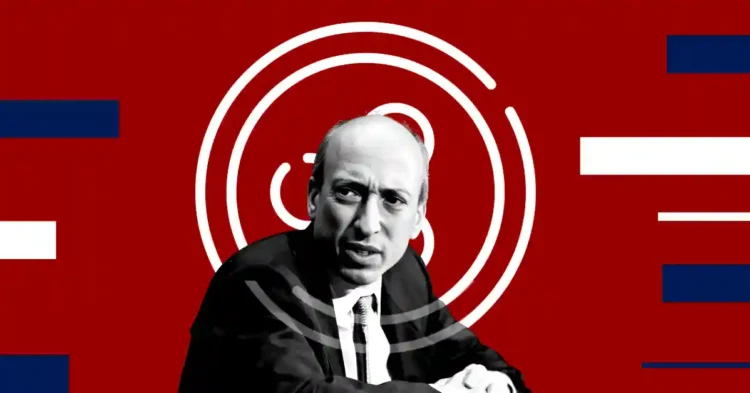Introduction to SEC’s Leadership Transition
The U.S. Securities and Exchange Commission (SEC) is undergoing a significant transformation under the leadership of Chair Gary Gensler. This change is marked by a series of strategic promotions within the SEC Enforcement Division, specifically targeting individuals who have played vital roles in crypto-related enforcement. These developments, executed with minimal public attention, have sparked widespread curiosity and speculation about their implications.
Gary Gensler’s Strategic Promotions
In a move that quietly unfolded, SEC Chair Gary Gensler has promoted five senior officers within the SEC Enforcement Division. These promotions typically occur gradually over several years, but Gensler’s swift actions have raised questions about the timing and underlying motivations. Notably, many of these officers have been instrumental in driving the SEC’s efforts against cryptocurrency-related violations.
The Crypto-Skeptic’s Perspective
John Reed Stark, a former SEC official known for his skepticism towards cryptocurrency, suggests that Gensler’s actions are calculated steps aimed at leaving a lasting impact on the SEC. With the anticipated appointment of a new chair, Paul Atkins, by the White House, Gensler’s moves could potentially set the stage for conflicts. The new leadership may find itself at odds with the entrenched crypto-focused policies that Gensler has championed.
The Role of Promoted Officers in Crypto Enforcement
Among the five promoted officers, four have been notably successful in advancing the SEC’s crypto enforcement initiatives. Their efforts have been pivotal in curbing unlawful activities within the cryptocurrency industry, earning them recognition as leading crypto-enforcement lawyers. However, Stark cautions that these professionals may face challenges aligning with the incoming leadership’s divergent regulatory approach, particularly concerning cryptocurrency policy under Paul Atkins.
Considerations on the Timing and Implications
The timing of these promotions, occurring just before the conclusion of President Trump’s term, has further intensified the debate surrounding Gensler’s intentions. Some critics argue that his actions are politically driven, intended to cement his legacy, while others view them as undermining the SEC’s future direction. As Trump had previously promised to overhaul the SEC’s stance on cryptocurrency, the juxtaposition of these events adds complexity to the narrative.
Impact on High-Profile Cases like Ripple
The evolving landscape also brings to light high-profile cases such as Ripple’s. Speculation abounds that under Atkins’ leadership, the case might be dismissed or see a more favorable resolution. Nevertheless, the course of action Gensler takes in his final days remains a critical factor in determining the outcome of the Ripple case, particularly with a significant hearing scheduled for January 15.
Conclusion
In summary, Gary Gensler’s recent promotions within the SEC Enforcement Division have set the stage for potential shifts in the regulatory landscape, especially in the realm of cryptocurrency. As the transition to new leadership unfolds, the interplay between Gensler’s legacy and the incoming policies under Paul Atkins will shape the future of crypto regulation and enforcement. The implications of these strategic moves, both for the SEC and the broader crypto industry, will continue to unfold in the coming months.











